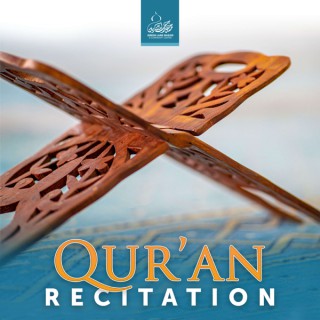Podcasts about shaykh
Arabic and Islamic honorific title
- 349PODCASTS
- 6,561EPISODES
- 34mAVG DURATION
- 2DAILY NEW EPISODES
- Feb 22, 2026LATEST

POPULARITY
Categories
Best podcasts about shaykh
Latest news about shaykh
- About People Who Sleep Most Of The Day In Ramadaan – Shaykh Uthaymeen Nairaland - Feb 27, 2026
- “Causuing Harm to Others” by Shaykh al-Islam Mufti Muhammad Taqi Usmani Sahab Damat Barakatuhum Deep Learning on Medium - Mar 20, 2025
- Kwara: Go out to change the world – Kwasu VC, Prof Shaykh Luqman-Jimoh to graduands Daily Post Nigeria - Dec 14, 2024
- AbdulRazaq Names Shaykh-Lukman KWASU VC, Transmutes Ilorin College To Education Varsity Leadership News - Jun 13, 2024
- Renowned Muhaddith And Scholar Shaykh Umar Bin Hassan Fallatah Passes Away MuslimMatters.org - Mar 27, 2024
- Shaykh Dr Umar Al-Qadri says he is determined to forgive attackers Independent.ie - Feb 18, 2024
Latest podcast episodes about shaykh
Allah Chose You for Ramadan: Don't Waste the Invitation - Shaykh Mohammad Faqih
Allah Chose You for Ramadan: Don't Waste the Invitation by Shaykh Mohammad Faqih.For more information and further updates, please visit us at https://www.icoi.net. Hosted on Acast. See acast.com/privacy for more information.
Masjid Al Falaah - 20th February 2026 - 'Jumuah Bayaan' with Shaykh Imraan Ahmed
Masjid Al Falaah - 20th February 2026 - 'Jumuah Bayaan' with Shaykh Imraan Ahmed
Heedlessness & Its Solutions - Shaykh Ahsan Hanif
Jumu'ah Khutbah recorded at Green Lane Masjid, Birmingham, UK.https://www.greenlanemasjid.org
Repentance/Tauba In The Modern Age | Unseen Signals | Shaykh Saqib Iqbal
Repentance/Tauba In The Modern Age | Unseen Signals | Shaykh Saqib IqbalThe Concept of Unseen Signals (0:00 - 3:20)Early Reminders: In childhood, sins often met with immediate consequences—like failing an exam, getting caught, or falling ill (0:09 - 0:25). These served as signals to repent.The Danger of Silence: Over time, these signals may stop. A person might continue sinning in private while maintaining a high social or religious status (like an Imam or businessman), leading to a false sense of security (0:29 - 1:30).Divine Neglect: The absence of punishment isn't necessarily a sign of pleasure; it can be a sign that one has been removed from the list of beloveds (3:02 - 4:10). This is described as a major trial where worldly doors are opened while spiritual ones close.The "PRAN" Method of Repentance (19:37 - 24:00)To make repentance effective and sustainable, the Shaykh introduces a simple four-step acronym: PRAN.1. P - Past: Acknowledge and confess past sins with the belief that Allah will forgive (19:55 - 20:45).2. R - Remorse: Feel true shame and embarrassment for the actions committed (20:46 - 21:12).3. A - Allah's Sake: Repent solely to please Allah or out of fear of the hereafter, not for worldly reputation (21:15 - 22:36).4. N - Never Again: Make a firm, sincere intention to never return to that sin in the future (22:54 - 23:12).
Seafood - Shāfiʿī - Ḥanafī | Fatwā Clarified | Shaykh Muḥammad Sāqib Iqbāl
English---Seafood - Shāfiʿī - Ḥanafī | Fatwā Clarified | Shaykh Muḥammad Sāqib Iqbāl--------------------------------------------------------------------The video explains the differing views on the permissibility of consuming various seafood items in the Ḥanafī and Shāfiʿī schools of Islamic jurisprudence.Ḥanafī Madhhab: (0:06-1:22)Only fish are considered ḥalāl (permissible) from sea animals.The permissibility of prawns and shrimps depends on whether Ḥanafī jurists classify them as a species of fish. (0:13-0:28)Lobsters, squids, crabs, octopuses, and turtles are unanimously considered ḥarām (forbidden) as they do not belong to the fish family. (0:40-0:56)Venomous, poisonous, or harmful fish are ḥarām even if they are fish. (1:02-1:09)Fish that die naturally and float on the water's surface are also ḥarām. (1:11-1:19)Shāfiʿī Madhhab: (1:24-2:32)All sea animals that cannot survive out of water are generally ḥalāl, with the exception of harmful animals. (1:34-1:41)Fish, prawns, and shrimps are all ḥalāl. (1:43-1:46)There are two valid positions regarding sea animals that can survive out of water:The consumption of frogs is unanimously ḥarām due to the prohibition of killing them. (2:41-2:59)The speaker emphasizes that the prohibition of certain seafood like lobsters in the Ḥanafī school is not an innovation, as similar positions exist within the Shāfiʿī school, contrary to what some "naïve Shāfiʿī brothers" and "lazy" individuals claim. (3:25-4:16) He cites classical Shāfiʿī texts and scholars to prove the existence of this valid position (7:44-11:06, 12:48-12:58, 25:17-29:20).The video further discusses the traditional approach of Shāfiʿī scholars in dealing with issues having two valid positions, stating that a muftī has the right to issue a verdict based on either. (18:00-18:18)Both Ḥanafī and Shāfiʿī madhhabs derive their rulings from the Quran and Sunnah, with differences arising from their interpretation. (32:08-32:15, 35:41-35:54)Ḥanafīs cite Quranic verses prohibiting dead meat (32:15-32:40) and Hadith explicitly permitting only fish and locusts. (32:45-34:26) They also note the absence of narrations where the Prophet or companions consumed seafood other than fish. (34:28-35:33)Shāfiʿīs cite Quranic verses stating "the catch of the sea is made ḥalāl for you" (36:00-36:31) and a Hadith stating "the water of the sea is pure and its dead is ḥalāl." (37:55-38:18)The speaker's objective is to demonstrate that all Islamic schools of thought base their rulings on the Quran and Sunnah, refuting the notion of "blind following" or unjustified criticism of established jurisprudence. (38:40-39:33)
Laylat ul Bara'ah Special l Emotional l Shaykh Muḥammad Sāqib Iqbāl
The one who asks Allāh for forgiveness with complete sincerity will surely be forgiven. Laylat ul Bara'ah special.Shaykh Muḥammad Sāqib Iqbāl
#49, Drömtydning i islam: Vad berättar våra drömmar för oss? Gäst: Shaykh Abdulwadod
Asalamu aleikom våra kära lyssnare! Varmt välkomna till vårt avsnitt med Shaykh Abdulwadod.I detta avsnitt talar vi om drömmar och deras betydelse i islam. Vad gör man när man har haft en mardröm, och finns det drömmar som är sanna? Lyssna på avsnittet för att lära dig mer om detta och mycket annat.Glöm inte att följa oss på Spotify, Apple Podcasts och SoundCloud.Prenumerera på vår YouTube kanal @islampodden och följ oss även på Instagram @islampodden för att hålla er uppdaterade.
The Fear of Death and a True Muslim! | Shaykh Muḥammad Sāqib Iqbāl
Full Ramadan Preparation Lecture -Releasing Soon-موت کا خوف اور سچا مسلمان!!The Fear of Death and a True MuslimShaykh Muḥammad Sāqib Iqbāl
Women Diya, Blood Money, Feminism & Islam | Shaykh Sāqib Iqbāl
Women Diya, Blood Money, Feminism & Islam | Shaykh Sāqib Iqbāl
Adulting While Muslim: Faith in Real Life w/Shaykh Hisham al-Qaisi | The Compass Ep #13
Al-'Isrä' Wal-Miraj I Full Lecture | Shaykh Muhammad Sägib Iqbäl
Al-'Isrä' Wal-Miraj I Full Lecture | Shaykh MuhammadSägib Iqbäl
Latest Talk: A Critical Look At Modern Sufi Claims | Shaykh Sägib Iqbäl
Shaykh, Murshid, Murabbi: Unpacking the Titles, Understanding the Role, Clarifying Today's Confusion Around Sufi Guides |Shaykh Muhammad Saqib Iqbal
The Trust That Terrified the Heavens — And You Accepted It - Shaykh Othman Altalib
The Trust That Terrified the Heavens — And You Accepted It by Shaykh Othman Altalib.For more information and further updates, please visit us at https://www.icoi.net. Hosted on Acast. See acast.com/privacy for more information.
Lessons from the Winter Weather - Shaykh Ahsan Hanif
Jumu'ah Khutbah recorded at Green Lane Masjid, Birmingham, UK.https://www.greenlanemasjid.org
What's Your Plan for 2026? - Shaykh Mustafa Abu Rayyan
Jumu'ah Khutbah recorded at Green Lane Masjid, Birmingham, UK.https://www.greenlanemasjid.org
Ramadan Won't Change You - Unless You Prepare - Shaykh Malek Bendelhoum
Ramadan Won't Change You - Unless You Prepare by Shaykh Malek Bendelhoum.For more information and further updates, please visit us at https://www.icoi.net. Hosted on Acast. See acast.com/privacy for more information.
Being Dutiful to Your Parents - Shaykh Zakaullah Saleem
Jumu'ah Khutbah recorded at Green Lane Masjid, Birmingham, UK.https://www.greenlanemasjid.org
How Dua Works by Shaykh Mustafa Umar.For more information and further updates, please visit us at https://www.icoi.net. Hosted on Acast. See acast.com/privacy for more information.
The Types of People Allah Loves - Shaykh Wasim Kempson
Jumu'ah Khutbah recorded at Green Lane Masjid, Birmingham, UK.https://www.greenlanemasjid.org
What Would Your Neighbors Miss If You Were Gone? - Shaykh Muhammed Faqih
What Would Your Neighbors Miss If You Were Gone? By Shaykh Muhammed Faqih.For more information and further updates, please visit us at https://www.icoi.net. Hosted on Acast. See acast.com/privacy for more information.
Conditions of La ilaha illallah - Shaykh Ahsan Hanif
Jumu'ah Khutbah recorded at Green Lane Masjid, Birmingham, UK.https://www.greenlanemasjid.org
Take Advantage of 5 Before 5 - Shaykh Mustafa Abu Rayyan
Jumu'ah Khutbah recorded at Green Lane Masjid, Birmingham, UK.https://www.greenlanemasjid.org
Benefits of Believing in Qadr - Shaykh Aqeel Mahmood
Jumu'ah Khutbah recorded at Green Lane Masjid, Birmingham, UK.https://www.greenlanemasjid.org
The Abyss Podcast - Issue 221: Shaykh Hanif Its The Abyss Podcast issue 221 we make our way back to Boston to reconnect with Shaykh Hanif! 2 years to the day since we last got the chance to speak, Shaykh has been on an amazing journey of elevation and his latest album The Hand That Feeds reflects that progress! We talk about the creative process behind this project as well as some recent highlights like traveling the world with his ftf brothers, learning how to make the most out of every opportunity, the results of operating with powerful gratitude and more! Dave Proch strikes again with the imagery, join Karl Lukey and PrimoJAB for the latest episode from The Abyss! DON'T SLEEP TAP IN! IG- @the_abyss_podcast @skitgod_lukeycage @dr.hellmouth @primojab EMAIL- cftheabysspodcast@gmail.com
The Gentle Voice of The Believer by Shaykh Tarik Ata.For more information and further updates, please visit us at https://www.icoi.net. Hosted on Acast. See acast.com/privacy for more information.
NEW SERIES: Inspired By the Salaf | #1 Poison of Fame | Shaykh Abubakar al Khalafi #AMAU
We live in a time where visibility feels like a requirement. We post every moment, turn every good deed into content, and treat being unseen like failure. But the Salaf lived the opposite. They hid their good deeds the way we hide our sins. They feared praise the way we fear embarrassment. They preferred the background while we desire the centre. "Inspired by the Salaf" is a call to step back from the noise. To pull hearts out of the culture of visibility, where every deed becomes content and every moment feels like it needs an audience. This series takes you into the mindset of people who feared attention, who protected their sincerity like treasure, and who begged Allah to keep them unknown. These were the Muslims whose names never filled timelines, yet their deeds filled the heavens. This series pulls us back to their path, where hearts didn't crave likes, they craved Allah. Where people hid their deeds, checked their intentions, called themselves out before others did, and stepped away from the spotlight before it blinded them. In each episode, we rediscover what they feared, what they warned against, and how they guarded their Ikhlas long before the word "clout" existed. In this opening episode, Shaykh Abubakar al Khalafi takes us straight to the heart of the issue: the desire to be seen. He tells us why the Salaf called fame a deadly disease, why they cried when their names appeared on fatwas, and how wanting recognition poisons sincerity inch by inch. It shows how desiring fame steals the sweetness of Iman, makes worship shallow, and leaves a person looking religious while feeling empty. Watch this if you've ever checked who viewed your story. If you've posted a good deed and waited for reactions. If being unnoticed feels like being irrelevant. The Salaf have something to tell you - and it might be the reminder that saves your heart before it's too late. Sign up now to AMAU Academy: https://www.amauacademy.com/ AMAU Academy: https://www.amauacademy.com/ AMAU Junior: https://amaujunior.com/ Instagram: https://www.instagram.com/amauofficial/ Patreon: https://www.patreon.com/AMAU Telegram: https://t.me/amauofficial YouTube: https://www.youtube.com/c/AMAUofficial Twitter: https://twitter.com/AMAUofficial iTunes: https://podcasts.apple.com/us/podcast/al-madrasatu-al-umariyyah/id1524526782 Spotify: https://open.spotify.com/show/08NJC1pIA0maaF6aKqZL4N Get in Touch: https://amau.org/getintouch BarakAllahu feekum. #AMAU #ikhlas #salaf #islamicreminder #islamiclectures
Shaykh Asrar Rashid | Syria, Palestine, Israel, Liberation & The Caliphate | BB #186
In this episode of the Blood Brothers Podcast, Dilly Hussain spoke with the prominent British Muslim scholar, author and debater, Shaykh Asrar Rashid. Topics of discussion include: Hanafi fiqh Q&A: Forgetting rakat in prayer, the niqab, combining prayer and wiping over socks in wudu. Syria one year on: Positives, negatives, and areas of concern. The occupation and liberation of Palestine in light of October 7th. Muslim armies, regimes, and the dismantlement of Israel. Shifting opinion in the West over Palestine and rise of the far right. Tommy Robinson and Imam Umayr Mulla's interview in Jerusalem. Deobandi and Barelvi differences and unity. State of the ummah, the end of times, and the next great war. FOLLOW 5PILLARS ON: Website: https://5pillarsuk.com YouTube: https://youtube.com/@5Pillars Facebook: https://www.facebook.com/5pillarsuk Instagram: https://www.instagram.com/5pillarsnews Twitter: https://x.com/5Pillarsuk Telegram: https://t.me/s/news5Pillars TikTok: https://www.tiktok.com/@5pillarsnews
Textual Life: Shaykh Musa Kamara and the Politics of Knowledge
In this episode, we sit down with Dr. Wendell H. Marsh (Mohammad VI Polytechnic University) to explore his groundbreaking book Textual Life: Islam, Africa, and the Fate of the Humanities (Columbia University Press, 2025). Marsh takes us deep into the intellectual world of Shaykh Musa Kamara, a towering figure of West African Islamic scholarship, whose bilingual manuscript History of the Blacks becomes a lens for examining colonial disruption, epistemic resistance, and the literary life of African thought. We unpack how Marsh reimagines African Islamic texts not as anthropological artifacts but as living documents of literary and philosophical engagement. From Kamara's struggle to publish in colonial Senegal to the broader implications for postcolonial humanities, this conversation challenges us to rethink what counts as knowledge, who gets to preserve it, and how textual traditions shape futures across continents.
“Allah Knows, and You Do Not Know” - Shaykh Yahya Ibrahim
Jumu'ah Khutbah recorded at Green Lane Masjid, Birmingham, UK.https://www.greenlanemasjid.org
An Inter-Quranic Contextual Analysis of the Nature of Revelation and the Revealer by Shaykh Arif Abdul Hussain
Shaykh Arif re-examines key Qur'anic terms to propose that the Qur'an is not a pre-fixed text but an articulation of formless meanings (Umm al-Kitāb) unveiled in the moment. He distinguishes between God and the agent of revelation speaking within the Qur'an, offering a nuanced linguistic and theological model rooted in inter-Qur'anic analysis.
Overcome Laziness by Shaykh Mustafa Umar.For more information and further updates, please visit us at https://www.icoi.net. Hosted on Acast. See acast.com/privacy for more information.
Lessons from Surah Al-Kahf - Shaykh Mustafa Abu Rayyan
Jumu'ah Khutbah recorded at Green Lane Masjid, Birmingham, UK.https://www.greenlanemasjid.org
Developing Resilience Through Patience and Trust in Allah -Shaykh Mohamed Almasmari
Developing Resilience Through Patience and Trust in Allah by Shaykh Mohamed Almasmari.For more information and further updates, please visit us at https://www.icoi.net. Hosted on Acast. See acast.com/privacy for more information.
Al-Kaffarat by Shaykh Furhan Zubairi.For more information and further updates, please visit us at https://www.icoi.net. Hosted on Acast. See acast.com/privacy for more information.
The Hadith That Shook the Scholars: "I Have Forbidden Oppression" - Shaykh Mohammd Faqih
The Hadith That Shook the Scholars: "I Have Forbidden Oppression" by Shaykh Mohammed Faqih.For more information and further updates, please visit us at https://www.icoi.net. Hosted on Acast. See acast.com/privacy for more information.
Cycles of History in the Quran by Shaykh Alaeddin Elbakri.For more information and further updates, please visit us at https://www.icoi.net. Hosted on Acast. See acast.com/privacy for more information.
How to Be Happy in Life by Shaykh Mustafa Umar.For more information and further updates, please visit us at https://www.icoi.net. Hosted on Acast. See acast.com/privacy for more information.
In this online lecture delivered via Zoom, Dr. Mufti Abdur-Rahman ibn Yusuf Mangera reflected on The Spiritual Teachings of Shaykh Yusuf Motala. The talk began with a brief historical overview of the Chishti Sufi tradition in India, outlining its deep roots in spiritual refinement, service, and remembrance of Allah. Dr. Mangera then introduced the influential role of Shaykh Yusuf Motala's own teacher, Shaykh Zakariyya Kandhlawi, whose guidance and scholarship shaped Shaykh Yusuf's journey on the path of Tasawwuf. The lecture highlighted Shaykh Yusuf Motala's unique approach to leadership — marked by a soft, compassionate character and a gentle “hands-off” style of management that empowered his students and institutions to flourish. Through these qualities, he embodied the essence of the Sufi path: humility, selflessness, and trust in Allah. This session offered not only historical insights but also practical lessons in spiritual living, drawing from Shaykh Yusuf Motala's life and legacy as a guide for seekers today.
The Balance: Loving and Living the Sunnah - Shaykh Nihal Khan
The Balance: Loving and Living the Sunnah by Shaykh Nihal Khan.For more information and further updates, please visit us at https://www.icoi.net. Hosted on Acast. See acast.com/privacy for more information.
In this far-ranging episode, we discuss: Why is Shaykh Khaled so different? What colonialism did to Islamic institutions The story of Lut and much more!































































































































































